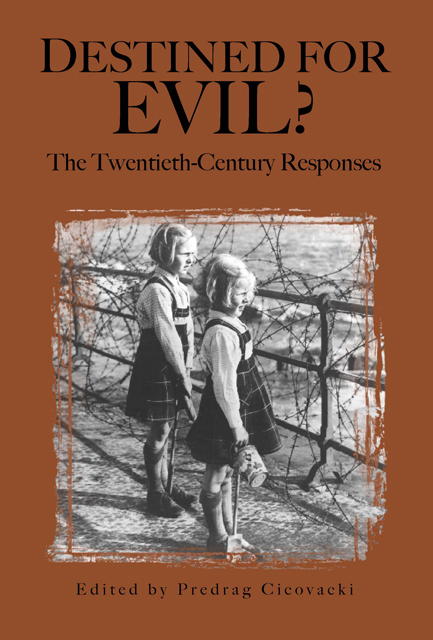Book contents
6 - Roads to Hell
Published online by Cambridge University Press: 17 March 2023
Summary
Tell people you work on the problem of evil, and you’re bound to disappoint them. For you’ve begun by raising hopes for solutions we’d all like to hear. We’d prefer an answer to the practical question: how can the amount of evil in the world be reduced? But if we can't actually get rid of evil, we’d like some help in thinking about it properly; in particular, we’d like to know how to justify the world, and life within it, when massive evil abounds. But this was Job's question, and not even God could answer it. Where does that leave the rest of us?
For me, it serves as a warning: solving the problem of evil is a hopeless undertaking, and may even involve an element of hubris that's uncomfortably close to blasphemy. So I want to try something else—itself not undaunting—namely, to compress a narrative of the modern history of the concept of evil into fairly short space. It's a project I’ve been working on for many years, and I was faxing final changes to my editor on September 11. Without wanting to raise other sorts of false hopes—nobody is more aware than I am that what might have been not too much more than an interesting topic in the history of philosophy has suddenly moved to the forefront of political discourse. So I’ll conclude my narrative of the history of modern philosophy by suggesting ways in which I hope that conceptual clarity might contribute to a bit of moral and political clarity.
Let's begin with the recognition that the word “Lisbon” was used, in the eighteenth century, to mean approximately what the word “Auschwitz” means for us: the sudden and total collapse of a set of assumptions that give the world sense and meaning. You think you know what justice is, more or less, and how much of the opposite a world can be expected to contain and still count as being civilized. You think you are realistic, know that the distance between this world and the best of all possible ones is vast and unbridgeable; you don't expect kitsch or fairy tale, just a world which doesn't make you cry out in disgust and shame.
- Type
- Chapter
- Information
- Destined for Evil?The Twentieth-Century Responses, pp. 91 - 110Publisher: Boydell & BrewerPrint publication year: 2005

